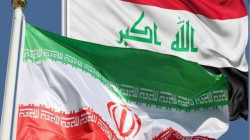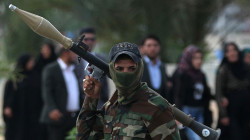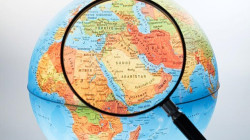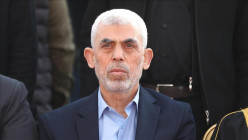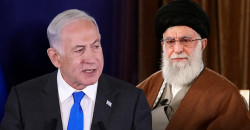The Impact of the Saudi-Iranian Rapprochement on Middle East Conflicts
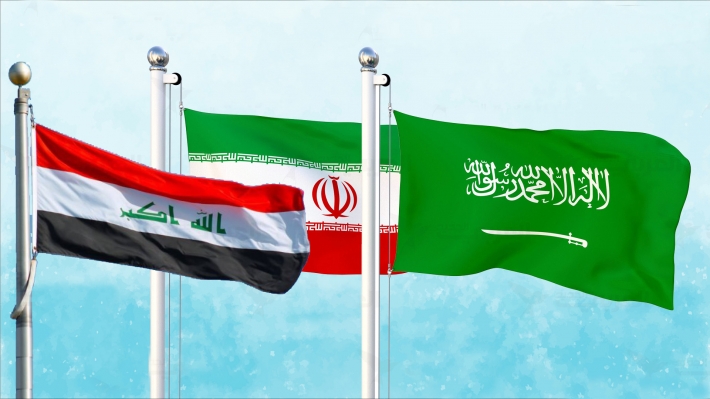
Shafaq News / On 10 March, representatives of Iran and Saudi Arabia, who had been meeting secretly for five days in the Chinese capital Beijing, announced a Chinese-sponsored agreement to restore diplomatic relations between the two countries. Tensions between the regional rivals date back more than four decades, persisting at lower levels through an earlier period of détente in the 1990s and then heightening in the past two decades. Riyadh formally severed ties with Tehran seven years ago. The countries’ effort to mend fences was public knowledge – Iraq and Oman had hosted previous rounds of talks between Iranian and Saudi officials – but China’s role in midwifing the accord was unforeseen, as was the speed with which the rapprochement has proceeded. The degree to which the Joint Trilateral Statement issued by the three countries augurs a geopolitical shift that will see China assume a larger role in a region where the United States has long been dominant remains uncertain.
An equally important question is whether and to what extent the Beijing agreement will contribute to managing, or even resolving, conflicts elsewhere in the Middle East. The competing regional agendas of Riyadh and Tehran have compounded devastating wars in Yemen and Syria, and continue to fuel instability in Lebanon and Iraq. Several Gulf Arab states have long been concerned about direct threats from, or even attacks by, Iranian proxies, as well as alleged Iranian support for dissident movements. Israel, meanwhile, sees Iran’s nuclear program as an existential threat. From its side, Tehran accuses Israel of sabotaging its nuclear program, and Saudi Arabia of backing ethnic opposition groups in Kordestan, Baluchistan and other troubled provinces, along with hostile Iranian diaspora media.
In this survey, Crisis Group analysts based in the Middle East present local perspectives on the Saudi-Iranian agreement and its impact on the region’s wars and crises. The bottom-line conclusion is that while reducing the intensity of regional competition may help redirect political energy to the core internal conflicts, the prospect of swift solutions remains slim. The Iranian-Saudi rapprochement may lessen Gulf Arab states’ security concerns. But it does not diminish the risk of a crisis triggered by Iran’s rapidly advancing nuclear program and the threat it poses, in particular for Israel, but also for some of Iran’s neighbours, including Saudi Arabia.
The Saudi-Iranian agreement provides a roadmap for re-establishing diplomatic ties within two months. If all goes well, it could reduce the intense hostility that has existed between the two countries for the better part of a decade. For now, the agreement’s rollout appears to be proceeding apace: King Salman of Saudi Arabia invited Iran’s President Ebrahim Raisi to Riyadh, and the two countries’ foreign ministers met in Beijing on 6 April. A senior Saudi official told Crisis Group that Riyadh “wants to build on the momentum generated by the success of the Beijing talks”, while the Saudi finance minister indicated that the country was prepared to start investing in Iran “very quickly”. Both countries sent technical delegations in preparation for reopening their respective embassies, suggesting that the two-month timeline is on track.
Beyond improving bilateral relations, the agreement may also help lessen tensions in the broader Gulf region. Officials in the United Arab Emirates, Kuwait and Oman all lauded the deal as a move toward stability and prosperity that will benefit all sides. A senior Qatari official told Crisis Group that the accord was a “positive first step”, but that Saudi Arabia would need time to regain a degree of trust in Iranian intentions after years of enmity. Even Bahrain – notoriously wary of engaging Iran – issued a statement welcoming the agreement and expressing hope for resolution of conflicts through dialogue and diplomacy.
Relations between Gulf Arab countries and Iran had already improved significantly over the last two years. The recent rupture between Iran and these states can be traced to January 2016, when Iranian protesters stormed the Saudi embassy in Tehran after Riyadh ordered the execution of Shiite cleric Nimr al-Nimr, a prominent dissident in the kingdom. All the Gulf Arab countries (except Oman) then downgraded or cut ties with Iran. In the succeeding years, Oman, Qatar and sometimes also Kuwait continued to engage with Tehran, even as tensions remained high. In contrast, Saudi Arabia, the United Arab Emirates (UAE) and Bahrain supported U.S. President Donald Trump’s “maximum pressure” campaign, which included over 1,500 new sanctions and belligerent rhetoric, all aimed at isolating and weakening Iran. Today, all the Gulf Arab states, with the exception of Bahrain, have restored or plan to restore full diplomatic relations with Iran. Even Manama, which has long accused Tehran of fomenting unrest among Bahrain’s Shiite majority population, reportedly held bilateral talks with Iran in recent months. Soon after the announcement of the Saudi-Iranian deal, Iran’s Supreme National Security Council secretary, Ali Shamkhani, met with top security and economic officials in the UAE, suggesting an acceleration and widening of UAE-Iran relations.
[...] The Saudi-Iranian deal has the potential to lower tensions in Iraq. Baghdad has for some time been trying to bring its two assertive neighbours closer together. Iran is the bigger of the two – its border with Iraq is twice as long as Saudi Arabia’s – and it enjoys close religious, economic and cultural ties with many Iraqis. It has substantial political clout as well: Tehran exploited the chaos following the 2003 U.S. invasion of Iraq to spread its influence, especially among the majority Shiite population and the ruling Islamist parties representing them. What is more, Iran’s Islamic Revolutionary Guard Corps supports a number of armed groups that operate outside the Iraqi state’s full control. These groups have periodically fired rockets at residual U.S. forces in the country, and they may be responsible for attacks on Saudi Arabia in 2019 and 2021.
Iraqi Sunnis, by contrast, historically hold tribal, trade and religious ties with Saudi Arabia. Riyadh has exercised the relatively little influence it wields in Iraq mainly through Sunni tribes as well as political parties that have been subordinate partners in post-2003 power-sharing governments. While Saudi Arabia has not been party to the conflict that has pitted Iran-backed paramilitaries against the U.S., it has found the overall security situation, especially the presence of Iran-sponsored groups near its own 800km border with Iraq, threatening to its interests.
To lower the temperature, Baghdad has undertaken efforts to reposition Iraq as an arena for regional dialogue rather than proxy confrontation. Various Iraqi politicians have called for better relations between Saudi Arabia and Iran. In particular, Mustafa al-Kadhimi, Iraq’s prime minister from 2020 to 2022, tapped the connections he acquired as former intelligence chief to bring Iranian and Saudi representatives to Baghdad for five rounds of direct talks during his tenure. Those negotiations were essential in clarifying both sides’ concerns and building a practice of regular dialogue that paved the way for the Beijing meeting. Under Prime Minister Mohammed Shia al-Sudani, Iraq has tried to cement its ties with Saudi Arabia. In late February, interior ministry officials from Saudi Arabia and Iraq signed a memorandum of understanding to strengthen security cooperation, and in January, Iraq’s southern city of Basra hosted the 25th Arabian Gulf Cup football tournament, prompting an influx of Gulf visitors that the country had not experienced in years. A Saudi-Iranian détente may also remove political obstacles that have stood in the way of substantial Saudi investment in Iraq.
Views from Iraq are mixed. Many Iraqis remain sceptical that Iran is prepared to make significant changes to its longstanding policies in Iraq, much less end its interference in domestic politics. In addition, while some new political parties and independents welcome the Saudi-Iranian détente and its potential to reduce harmful regional tensions, others caution that increased coordination with and potential investment in Iraq by Saudi Arabia would only benefit the ruling elite and strengthen their grip on power, further fuelling already widespread popular anger at the political class. Others fear that continued tension between Iran and the U.S., for instance over Iran’s nuclear program and the continuing (though much reduced) U.S. military presence in Iraq, may again lead to violence by paramilitary groups. The Saudi-Iranian deal was in part motivated by Riyadh wanting to protect itself in the event of escalating U.S.-Iran tensions, but such violence would still make it difficult for Riyadh to continue to engage with Baghdad.
(International Crisis Group)
